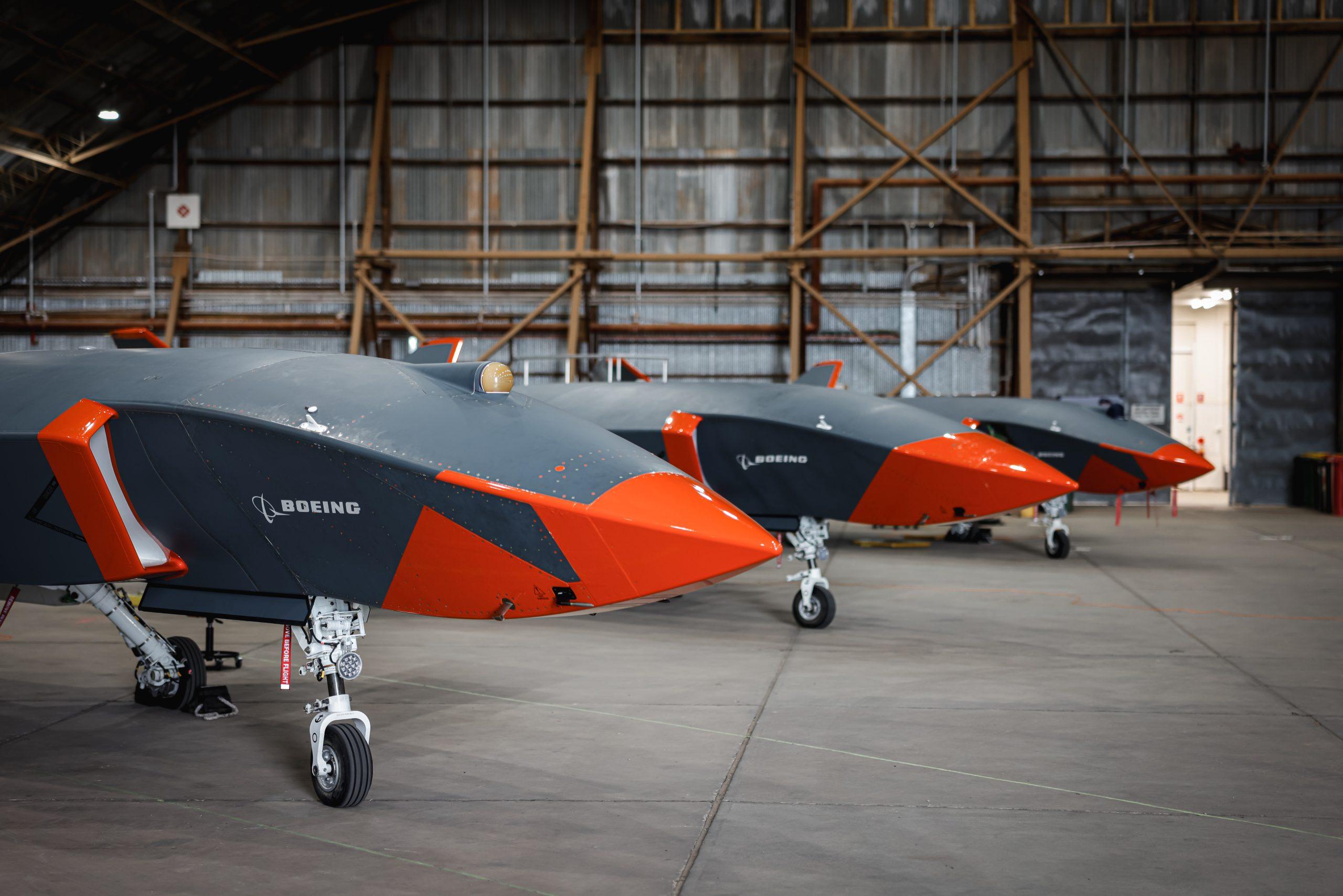
The next National Defence Strategy (NDS) statement and its accompanying spending plan will have to pay a lot more attention to the Royal Australian Air Force’s future air combat capability. And they must aim at exploiting big changes underway in the nature of airpower, giving the Boeing Australia MQ-28 Ghost Bat a leading role.
Those next policy statements, due in 2026, should contrast strongly with the 2024 NDS and its spending plan, the Integrated Investment Program (IIP), which offered little forward vision of air combat capability. Instead, they prioritised funding for nuclear-powered submarines, a larger surface combatant fleet and moving towards fielding a long-range strike capability.
The 2024 IIP’s biggest effect on future air combat capability was cancellation of a fourth squadron of Lockheed Martin F-35A Lightnings—leaving the RAAF with just 72 aircraft of the type—and a recommendation for their incremental improvement. It set out plans to keep the RAAF’s 24 F/A-18F Super Hornets and 12 E/A-18G Growlers until 2040, and it offered support for further development of the Ghost Bat, which is a collaborative combat aircraft (or CCA, an uncrewed aircraft designed to work with fighters). The IIP also made a vague statement on supporting development of ‘other uncrewed aerial systems.’
The rest of the airpower chapter in the IIP reiterated previous capability announcements on air mobility, such as replacing C-130H Hercules airlifters with aircraft of the more modern C-130J version. In regard to strengthening air-based intelligence, surveillance and reconnaissance (ISR), the IIP just reiterated long-standing plans—for buying MQ-4C Triton uncrewed aircraft and MC-55 Peregrines. Interestingly, it also mentioned a replacement for the E-7A Wedgetail airborne early warning and control aircraft. This appears, with little detail, in the chapter on integrated air and missile defence.
The document’s cautious support for the future development of CCAs such as the Ghost Bat was one, welcome glimpse towards the next generation of capability. But in two years the next NDS and IIP will need to be much more ambitious: they will need to fully support rapid production and early entry into operational service of Ghost Bat and development of future evolved versions with greater range, payload and performance for service late this decade or in the early 2030s.
Those evolved versions will be needed for the Ghost Bat to reach its greatest potential, but Defence and Boeing will also have to hold down manufacturing and sustainment costs. The great merit of CCAs is that they can bring combat mass—large numbers of aircraft—thanks to low costs. If the Ghost Bat becomes too expensive, we will simply end up back where we started, with few, exquisite aircraft providing a brittle combat capability. This will be a significant challenge for defence acquisition in the coming decade.
Defence also needs to push the edge of the envelope in trusted autonomy, with humans still not in the loop but on it, meaning that they can intervene when necessary to oversee CCA operations. Defence should be willing to embrace the role of artificial intelligence in managing large numbers of CCAs alongside smaller numbers of crewed platforms. Maximising the role of AI also mitigates risk posed by Chinese system-destruction warfare that is aimed at attacking critical information infrastructure at the outset of a conflict, and in doing so, destroying the resilience of ADF command and control. It’s time to let the machine take control, with humans asserting control only when they need to.
The current government has decided not to arm the Ghost Bat, though this option remains open for later versions. Even without weapons, the type can be valuable for ISR and electromagnetic-warfare missions and should be developed accordingly. Ghost Bats could, for example, offer enhanced situational awareness for crewed fighters undertaking defensive counter-air operations. Exploiting their stealthy design, CCAs could carry their sensors well forward of the crewed shooters and pass target information to them by data link. Ghost Bats could support warships in the same way.
Ultimately, the Ghost Bat’s potential won’t be fully realised unless it is armed with long-range air-to-air missiles or stand-off weapons to strike surface targets.
They must have long endurance but also high performance to ensure survivability, and they ideally should be able to be air refueled. This will of course cost more, and as noted before, its vital to avoid that cost blowing out to the point where the ability to procure large numbers of systems is lost.
It’s also important to get the acquisition model correct. One option is to exploit iterative acquisition of small numbers of more role-specialised designs, which can be developed quickly and updated more frequently. That, and exploiting design and development based on use of a digital-twin in simulated environments should allow faster and more flexible responses to changing threats. In the same way, heavy sustainment costs can be avoided.
CCAs such as the Ghost Bat are one type of capability which future NDS and IIP need to emphasise, but those aircraft and F-35As, Super Hornets and Growlers are not necessarily a complete solution to the RAAF’s future air combat needs. The next article will consider the implications of next generation crewed air combat aircraft.